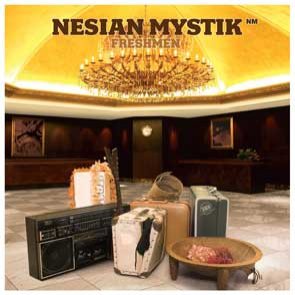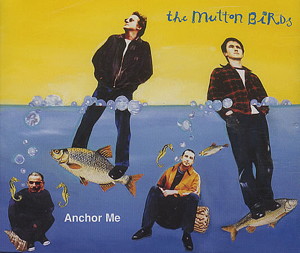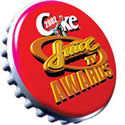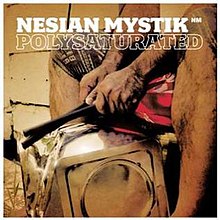
Che Kuo Eruera Ness, better known by his stage name Che Fu, is a New Zealand singer, songwriter and producer. A founding member of the band Supergroove, as a solo artist he has gone on to sell thousands of albums both in New Zealand and internationally. Che Fu is considered a pioneer of Hip hop and Pasifika music in New Zealand.
New Zealand hip hop derives from the wider hip hop cultural movement originating amongst African Americans in the United States. Like the parent movement, New Zealand hip hop consists of four parts: rapping, DJing, graffiti art and breakdancing. The first element of hip hop to reach New Zealand was breakdancing, which gained notoriety after the release of the 1979 movie The Warriors. The first hip hop hit single, "Rapper's Delight" by the Sugarhill Gang, became a hit in New Zealand when it was released there in 1980, a year after it was released in the United States. By the middle of the 1980s, breakdancing and graffiti art were established in urban areas like Wellington and Christchurch. By the early 1990s, hip hop became a part of mainstream New Zealand culture.
The following lists events that happened during 2003 in New Zealand.

Urban Pasifika is a New Zealand subgenre of hip hop, that developed primarily among Pasifika New Zealanders in South Auckland. Drawn from alternative hip hop and R&B influences, it was quickly blended with Pacific Island or Māori instrumentation and traditional songwriting and singing and rapping in a variety of Polynesian languages, such as Māori, Samoan, Niuean and Tongan. The genre's genesis in the 1980s blossomed into a unique, globally enrapturing cultural scene in its homeland of Auckland, especially in the next decade. Urban Pasifika is one of the most popular music genres to arise from New Zealand, and helped cement Auckland's reputation on the world stage as a major cultural centre, and the most ethnically Polynesian city in the world.

The Edge is a youth-oriented New Zealand entertainment brand consisting of a national radio network and an entertainment website. It is owned and operated by MediaWorks New Zealand. It previously had a TV channel, The Edge TV.
Rosita Gibbons née Vai is a New Zealand singer who rose to musical fame as the winner of the second season of New Zealand Idol in 2005.
Smokefreerockquest (SFRQ) is an annual music competition for intermediate and high school bands throughout New Zealand.

More Nature is a one-disc compilation album of twenty notable New Zealand popular music songs from 2000 to 2005, intended to be a supplement to the Nature's Best series of compilation albums. The song selection for More Nature was not voted on by Australasian Performing Right Association members as were the Top 100 New Zealand Songs of All Time. All of the songs on this album were selected because they had been released after the voting for the Nature's Best song list was conducted. The album was certified platinum.
Nesian Mystik was a New Zealand hip-hop/R&B group which formed in 1999. The cultural backgrounds of its members united a remarkable diversity of Polynesia by bringing together Cook Island, Tongan, Samoan and Maori ancestry. As well as producing a record number of Top 10 New Zealand singles, Nesian Mystik supported international acts such as Robbie Williams, Missy Elliott, Shaggy and The Black Eyed Peas. The group officially disbanded in 2011 after a successful music career that included four commercially successful albums and numerous New Zealand Music Award nominations.

"If It's Cool" is a single by the New Zealand hip-hop group, Nesian Mystik released in 2006.The song peaked at no.5 on the RIANZ chart. The song uses a sample from The Style Council's "Shout to the Top".

Freshmen is the second album released by New Zealand hip-hop group, Nesian Mystik, in 2006. The album entered the New Zealand charts at number 8, and was certified gold by the end of the first week with 7,500 sales.

"Anchor Me" is a 1994 single by New Zealand rock band The Mutton Birds. The song peaked at #10 in the New Zealand singles chart, and charted for nine weeks. The song was from the group's 1993 album Salty, with three other album tracks used on the single. "Anchor Me" is a love song, written by the Mutton Birds' lead singer Don McGlashan about his wife.
Spacifix is a New Zealand funk/soul/R&B and reggae boy group from West Auckland, New Zealand. They formed in April 2003 with the view of entering the Smokefree Pacifica Beats national competition. Aged between 13 and 18 years they won the competition first time up. Until April 2005, the band played a number of festivals and concerts and increased their fan base in West Auckland.
4 Corners is a New Zealand Hip-Hop group formed in 1998. Their songs On the Down Low and By My Side charted on New Zealand's top 40 in 2005 and 2006 respectively.

"Nesian 101" is the first single released by New Zealand group Nesian Mystik from their album Elevator Musiq. The single was released in 2008, under Bounce/Universal Records.

Elevator Musiq is the third album released by New Zealand hip-hop group, Nesian Mystik on 28 October 2008 by Bounce/Universal Records. Album art work was done by New Zealand Street artist Misery. Guest Artists include PNC, Young Sid and Che Fu.

"Back Round" is a song by Australian hard rock band Wolfmother. Written by vocalist and guitarist Andrew Stockdale, the song was the first material released since original band members Chris Ross and Myles Heskett left the band in August 2008. "Back Round" was originally released as a free digital download on the band's official website on 30 March 2009, and was later released as a downloadable single on iTunes on 26 May 2009. In October 2009 the song was featured on the deluxe edition of the band's second album, Cosmic Egg.

"Sun Goes Down" is a single by Nesian Mystik, released on 8 February 2010. It is the second single from 99 A.D., their fourth studio album. It peaked at number three on the New Zealand Singles Chart, and was certified gold in its seventh week on the chart. It has since been certified platinum.

The Juice TV Awards was an annual New Zealand music video award presentation held by the now defunct New Zealand music video channel Juice TV. The awards were founded in 2001 and initially honoured music videos from both New Zealand and international acts, however in 2004 the awards were limited to New Zealand artists only. Finalists were selected by Juice, with the winners chosen by public vote. No ceremony was held in 2009 and the 2011 awards was the final holding. Juice closed in 2015.












